大钟庄镇——红苇厂村
今日徒步: 13.11 英里 / 21.10 公里
累计徒步: 75.24 英里 / 121.10 公里
今日捐款: 12,220.00元
累计捐款: 40,210.00元

“每个人的生命都是殊途同归。只有不同的的活法才将每个人区别开来。”
——欧内斯特·海明威(二十一世纪美国小说家,1954年诺贝尔文学奖获得者。他的《太阳照常升起》1926出版,被认为是美国文学中最优秀的作品之一。)
我们从昨天新命名的“中英友谊桥”开始今天的徒步。那是一个美丽的早晨。太阳明晃晃地照耀着大地,有一股凉爽而有力的的风从我们身后的山上吹下来。这样的天气对于徒步来说堪称完美。


今天中国社会科学院的房宁教授也加入了我们徒步的队伍。他是中国政治架构的研究专家,特别是对基层地方政府机构有深入的研究,他撰写了几本畅销书,例如《民主的中国经验》。房教授看过我们2015年从北京步行到杭州的那本书,知道我们徒步中国,他在2017年和他的朋友们一起也徒步走了京杭大运河路线。我们有许多共同语言,还好一路上有足够的时间,我们边走边尽情地聊着。
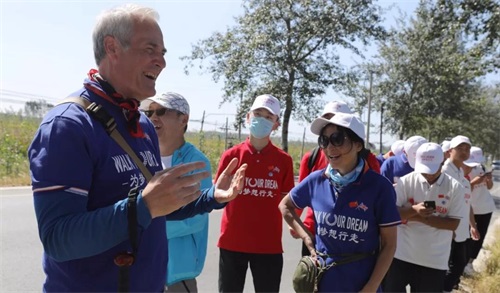


途中,我们在一个村子稍作停留,这片村落从路边就可以尽收眼底。他指给我看那些高低错落的屋顶——我以前从未注意到这点,我问为什么会这样。房教授说,这反映了房主的地位——屋顶越高,则显示地位越高。我感到好奇,于是追问起来。他继续解释说,屋顶的高度原按照村规定应该是一样的,你必须得到特别许可才以抬高屋顶的高度,那就说明这家庭肯定在村里是有一定的影响力的。当然也要小心,不能把屋顶抬得过高,这样也许你会冒犯村里更有势力的人。
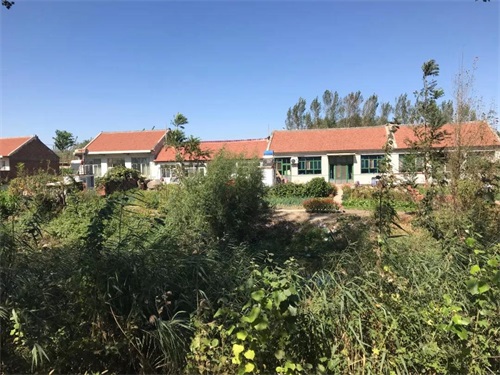
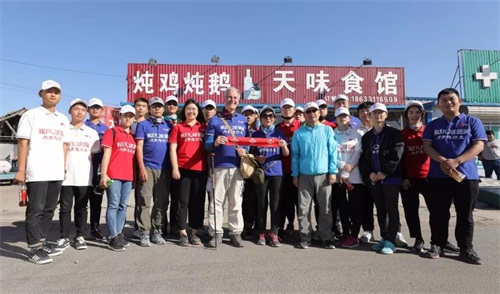
在中国,地位的重要性是基于儒家文化,倡导长幼尊卑。我非常熟悉中式晚餐的就座规则和拍照时站位的重要性。即使是为祝酒而碰杯也需要反映出上下级人物的不同地位,下级要用杯子去碰上级杯子的下方边缘。地位之所以如此重要,是因为根深蒂固的尊卑文化。
所有人类社会或多或少都有反映社会地位的方式。在英国,这是通过社会阶层体现的;在印度,通过种姓制度来体现;在美国,则通过物质财富的积累和宗教的从属关系来定义富人和上等人。我理解这种社会地位带来的困扰——其实这是从人类的动物祖先那里流传下来的。我记得看过一部关于湖北小鼻猴的纪录片,这些猴子生活在数量为500-600的大型群居群体中,它们完全展现出和人类社会一样,相似的争夺领土和阶级地位划分的本能。
虽然我理解这些本能的起源,但我还是很难接受它,尤其是当它阻碍那些才能突出、能力超群的人们发展时。我更愿意接受的观点是,评判一个人的成功与否应该取决于他的奋斗和努力而不是他的出身。

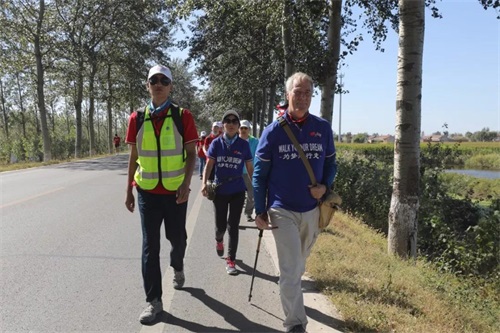

一天快结束时,S361号公路上发生了一起交通事故,一辆载有钢管的大货车堵住了窝洛沽镇附近两个方向的道路。我们不得不等待疏通,路途中,我们偶然发现了一个伐木场。雪琳走进去问我们是否可以进去参观一下?他们表示欢迎,但令我们惊讶的是,这里除了木材批发,他们还是生产棺材的工厂。

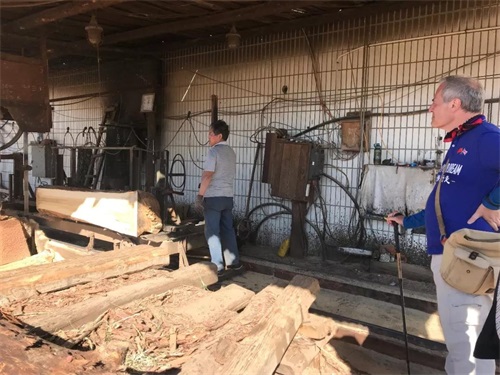
雪琳此时感到很不舒服——在中国社会,死亡不是一个可以被普遍接受的话题,但是我很想了解更多。因为我父亲曾是教堂牧师,主持过许多葬礼(当然更多是主持婚礼和洗礼)。我父亲很受大家欢迎,因为他非常关心和了解死者及其家人和朋友的生活。他相信每个人的生命都是非同寻常的,葬礼是一个讲述他们生平故事的好机会。我经常和我父亲开玩笑说,我希望他能来主持我的葬礼,因为这无疑是对我的一生所给予最高的评价。

我再接着说这家我们走进的工厂:这是由刘振华夫妇经营管理的,他把我们带进一个大仓库,那里有大约上百个巨大的棺材。我立刻被它们的尺寸震惊了——大概是英国棺材尺寸的十倍,它们的平均重量为1.5吨。我又问,这些棺材最终是被烧了还是埋了?刘振华答,直接埋了。我联想到那些掘墓人必须要挖一个巨大的坑才能把它放进去。大棺材是一种传统,虽然现在没有了土葬,人去世之后必须火化,巨大的棺材里只是放置了逝者的骨灰而已。我询问了棺材的价格大约在4000元至5000元之间,人们常常在活着的时候就为自己选好了棺材。

我不禁追问,为什么人们会想要这么大的棺材呢?得到的回答还是那个熟悉的词“地位”。但是它将被埋葬在地下,谁能看到呢!这难道不是一种浪费吗?不,他回答说,在埋葬之前,村民们会肩扛着棺材在村庄周游几圈。我更惊讶的是,抬棺材的人数——大约30人——他回答。棺材越大越重,此人的地位就显得越高——就像屋顶的高度一样。根据逝者的年龄,葬礼会有所不同。如果逝者超过80岁,那就是算“喜葬”,现场也会吹奏很多欢快的曲子。如果不到80岁,那葬礼将会充满了哀伤之情。

我回想起我父亲的观点,他认为葬礼不是为了死者,而是为了安慰尚在人间的亲友,安慰那些失去了挚爱的父亲、祖母、兄弟、女儿、朋友或同事。至此我意识到棺木的大小确实很重要,因为这反映了他们对生命的尊重,以及在生命的最后阶段,让自己爱的人有尊严、得体地离开这个世界,并以此来获得安慰。在这点上,我的父亲和刘振华夫妇应该是不谋而合的。




原文 / 麦克·贝茨勋爵
翻译 / 杨梦
翻译校对 / 陈必萍
微信编辑 / 杨帅
总校对 / 李熙琳、雪琳
贝茨勋爵日志英文原文如下:
Walked: 13.11 miles
Total: 75.24 miles
Today raised: ¥ 12,220.00
Total raised: ¥ 40,210.00
"Every persons life ends the same way. It is only how they lived that distinguishes one from another"
——Ernest Hemingway(21st century American novelist and winner of the Nobel Prize for Literature in 1954. His book 'The Sun Also Rises' published in 1926 is regarded as one of the finest works of American literature)
We started out from the newly named 'UK-China Friendship Bridge. It was a beautiful morning. The sun was shining brightly and there was a strong and cool breeze coming down from the mountains behind us. It was perfect walking weather.
We were joined on the walk by Professor Fang Ning from the Chinese Academy of Social Sciences. he was a specialist in Chinese political structures especially at the local levels and had written several well read books including 'China's Democratic Path'. Professor Fang had learnt about our walking when he read the book of our walk from Beijing to Hangzhou in 2015. He and friends had walked the same route in 2017. We had lots to talk about and lots of time to walk and talk.
Along the way we stopped at a village which was visible from the road and he pointed to the different heights of the roofs. I had never noticed this before. I asked why this was so. He said it was a reflection of the status of the home owner--the higher the roof the higher the status. I was intrigued by this and asked more. He explained that the height of the roof is set out in local regulations, therefore if you have manged to get permission to raise your roof then you must have influence. Of course great care needs to be taken that you don't raise your roof too high as this may cause offence to someone more powerful in the village.
The importance of status in China is based on a Confucian culture which encourages respect. I am very familiar to the importance of seating plans in Chinese dinners and also for photos. Even the touch of glasses for a toast needs to reflect status with the lower status person touching the glass of the higher status person's glass just below the rim. Status is important but only because of the underlying culture of respect.
All human societies to a greater or lesser degree have ways of reflecting social status. In the UK this is done through social class; in India through the caste system; in America through material wealth in others by tribal grouping or religious affiliation. I understand status obsession--we get it from our animal ancestors. I recall watching a documentary about Snub-nosed Monkeys in Hubei who live in large community groups of 500-600 and display all the same competitive territorial and hieratical instincts visible within human communities.
Although I understand the origins of the instinct I do have difficulty in accepting it especially when it becomes a barrier to people with talent and ability progressing. It should be that the quality of someone's life is judged by how they have lived it.
Nearing the end of the day were walking along the S361 and there was an accident in which a large lorry carrying steel pipes had tipped over and blocked the road in both directions near Woluoghuzen. We were asked to wait and noticed a wood cutting yard. Xuelin went in and asked if it would be okay for us to look around. They were very welcoming but we were in for a surprise as the wood cutting they were doing was to make funeral coffins.
Xuelin became very uncomfortable at this stage--death is not an acceptable topic of conversation in Chinese society and yet I was intrigued to learn more. My father was a Church pastor and would conduct many funerals (and more happily weddings and baptisms). My father was very popular to take services because he took great care to understand the life of the person who had died and their family and friends. He believed that everyone's life as extraordinary and the funeral was an opportunity to tell their story. I often joke with my father that I hope he is around to do my funeral as it will undoubtedly be the best assessment of life and legacy it would be possible to get.
Back to the wood mill: It was run by Liu Zhen Hua an she took us into a large warehouse where there were around 100 huge coffins. I was immediately struck by their size--probably ten times the size of a British coffin. They weighed an average of 1.5 tonnes. I asked whether they were burned or buried--buried was the reply. I thought for the gravedigger who would have to dig an enormous hole to put it in. The large coffin was a tradition although now bodies must be cremated so it is only the ashes that are in the enormous box. A coffin costs between RMB 4000- RMB 5000 and it is common for people to choose their coffin when they are alive.
Why I asked would people want such a large coffin? The reply was that familiar word 'status'. But, I said it is going to be buried in the ground so isn't that a waste. No, she replied, before it is buried it is paraded around the village carried on the shoulders of villagers. I was further amazed--how many people does it take to carry the coffin--30 people--she answered. The bigger and better decorated the coffin the greater the status of the person inside--just like the height of the roofs. The ceremony would differ depending on the age of the deceased person. If they were over 80 then they had what was called a 'happy funeral' with cheerful music. If less than 80 then it was sad.
I reflected on my father's view that the funeral service was for not for the benefit of the dead but for comfort of the living. The children who have lost a much loved father, grandmother, brother, daughter,friend or colleague. I saw that the size of the coffin did matter because it was a reflection of the respect they had for the life lived and their desire to achieve comfort for their sense of loss through feeling they had honoured them appropriately in their final journey through this world. My father and Mrs Lui would be at one in that desire.
来源:贝茨勋爵
来自:职教城宣传部
制作:李璟瑶
责编:李 倩
